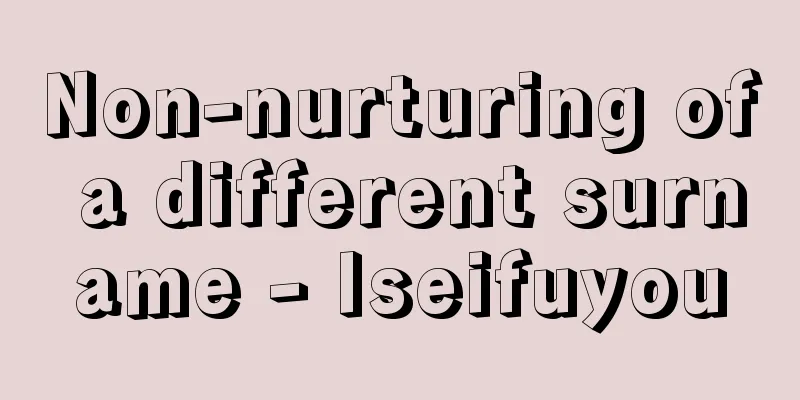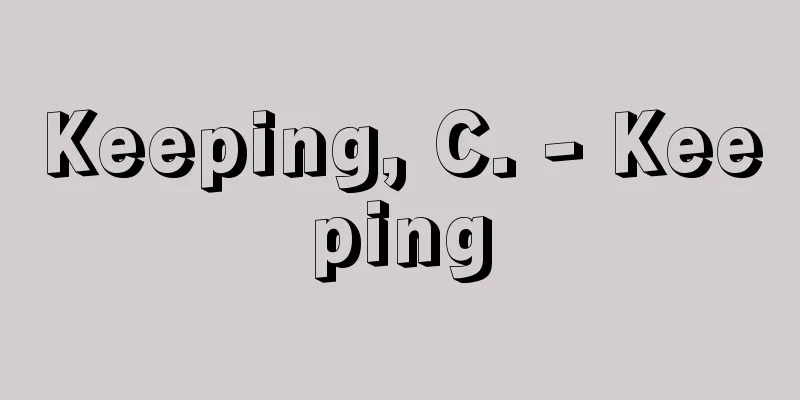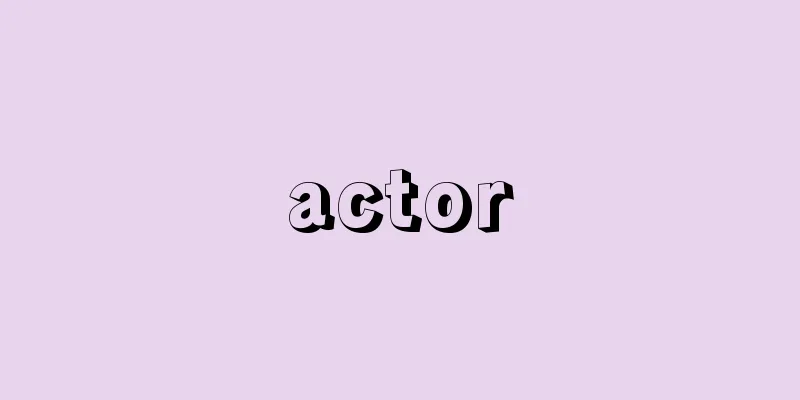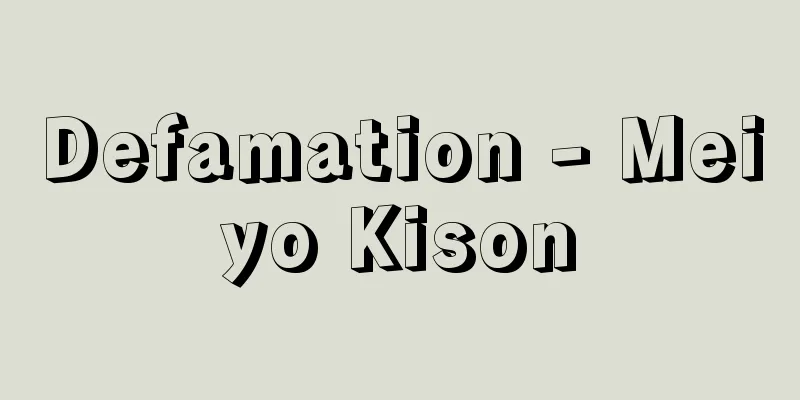Consumer Education - shohishakyoiku
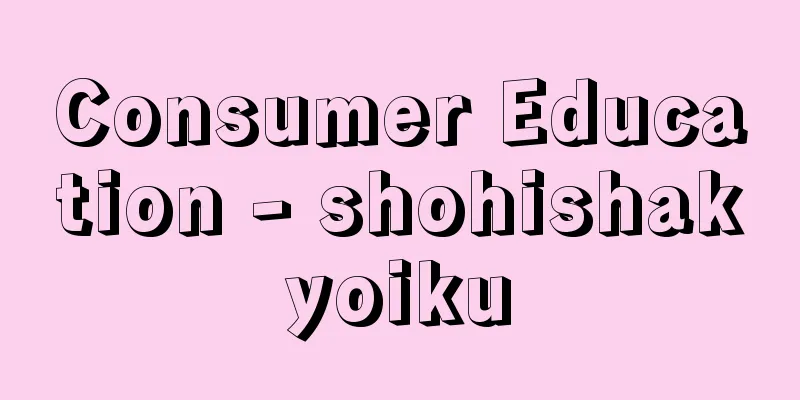
|
It is an education for general consumers to make rational value judgments about products and services, improve their individual consumer lifestyles, and become aware of the significance of consumption and the role of consumers in the economy and society. In a broader sense, it aims not only to protect the lives and improve the consciousness of consumers by using the pursuit of such economic benefits as a starting point, but also to preserve and expand the autonomy of consumers in the market, and furthermore, to promote the healthy development of the economy and society through the active participation of consumers. [Mitsuaki Imai] The concept of consumer educationIn 1962, US President Kennedy proclaimed four consumer rights: "the right to safety," "the right to be informed," "the right to choose," and "the right to have one's opinion heard," and in 1975 President Ford added the fifth consumer right, "the right to consumer education," stating that without it the other four rights would not be fully satisfied. This corresponds to the fact that the wide variety of products and services that have emerged along with the advancement of industrial technology and the diversification of sales formats have made it an extremely major issue for consumers to lead rational and prosperous consumer lives: how well they can select and use them. Consumer education in Japan finally became popular in the 1960s, and initially it was "living environment-adaptive" with the aim of "creating smart consumers" in the sense of "shopping well." However, with the expansion of the economy and the complication of the industrial structure, consumer education entered an era of structurally arising consumer problems, and it developed into a "living environment-fostering" education that aims to eliminate and improve the products and services offered that infringe on the basic values and quality of life, such as the safety and health of consumers (dangerous products, fraudulent sales practices, etc.). In the 1980s, American consumer education began to focus on developing the ability to participate in citizenship. Furthermore, interest and research into specific methods of education have deepened to the point of establishing a philosophy and conceptual framework for what consumer education is. The President's Select Committee on the Consumer Interest (1969) defined consumer education as "the acquisition of skills, concepts, and understanding in daily life which will enable each individual to obtain maximum satisfaction in his or her own selection and formulation of values," and this conceptual definition has become the basis for various definitions of consumer education. [Mitsuaki Imai] Contents of consumer educationFrom the above definition of the concept, consumer education can be understood as follows. That is, consumer education is about cultivating the ability to (1) purchase a product or service based on the "value" of its meaning in one's life and lifestyle, (2) obtain the necessary "information" through "critical thinking" and "trade-offs," and (3) make a "decision" that one can be personally and socially responsible for. And "value," "information," "critical thinking," "trade-offs," and "decision-making" are the five keywords when considering consumer education. From this, it is recognized that consumer information as knowledge is not consumer education as behavioral assessment, as is commonly thought. In accordance with the essence of consumer education, in the United States and Europe, educational methods such as case story methods and role-playing methods that incorporate simulated experiences of fraudulent business practices have been developed rather than lecture methods that introduce knowledge. [Mitsuaki Imai] New developments in consumer education in JapanIn 1990, the Consumer Education Support Center was established under the joint supervision of the Economic Planning Agency (currently the Cabinet Office) and the Ministry of Education (currently the Ministry of Education, Culture, Sports, Science and Technology). With the cooperation of the four parties of government, consumers, companies and schools, consumer education has been systematically implemented, particularly by incorporating the consumer education method mentioned above into school education. In school education, emphasis has been placed on the "ability to live" that is developed through "integrated learning". As we enter an age of consumer-conscious society, with the arrival of a lifelong learning society, a deregulated society, and an IT (information technology) revolution, as well as the enactment of the Product Liability Act (PL Act, enacted in 1995), the Consumer Contract Act (enacted in 2001), and the Consumer Basic Act (enacted in 2004), the launch of the Consumer Affairs Agency (2009), and the establishment of the Consumer Education Promotion Council (2011), the announcement of the "Guidelines for Consumer Education in Universities and Social Education" by the Ministry of Education, Culture, Sports, Science and Technology in 2011 is of great significance. Consumer education plays an important role in life-long education, including food education, awareness-raising on countermeasures against fraudulent business practices, and consumer issues for the elderly. In consumer life, consumer education is being recognized as a role in forming a "consumer civil society" by helping consumers make responsible decisions and act as family members, citizens, and global citizens, based on ethical, social, economic, and ecological considerations as individuals. Since the publication of the 2008 White Paper on National Lifestyle, the term "consumer civil education" has been particularly emphasized, and people are becoming more aware of the role of consumer education as a role in this. [Mitsuaki Imai] "Consumer Education Theory" edited by Mitsuteru Imai and Hideki Nakahara (1994, Yuhikaku)" ▽ "2008 Edition National Lifestyle White Paper - Prospects for a Consumer Civil Society" (2008, Cabinet Office) ▽ "Japan Society of Consumer Education (ed.) 'The Thirty Year History of the Japan Society of Consumer Education' (2011)" [References] | | | | | |Source: Shogakukan Encyclopedia Nipponica About Encyclopedia Nipponica Information | Legend |
|
一般消費者に、商品やサービスについて合理的な価値判断を下し、個人の消費生活を向上させるとともに、経済社会における消費の意義と消費者の役割とを自覚させるための教育をいう。より広義には、そうした経済的利益の追求を手掛りに、消費者の生活防衛および意識の向上を図るだけでなく、市場における消費者の主体性の保全や拡大、さらには消費者の積極的な参加による経済社会の健全な発展をも目ざすものである。 [今井光映] 消費者教育の概念1962年、アメリカの大統領ケネディは「安全を求める権利」「知らされる権利」「選ぶ権利」「意見を反映させる権利」という四つの消費者の権利を宣言したが、さらに大統領フォードは、1975年に「消費者教育を受ける権利」を消費者の第五の権利とし、これなくしてほかの四つの権利は十分に満たされない、とした。このことは、産業技術の高度化、販売形態の多様化に伴って出現した多種多様な商品やサービスを、消費者がいかに上手に選択して使いこなすかが、合理的で豊かな消費生活を営むうえできわめて大きな課題となったことと対応している。 日本の消費者教育は、1960年代に入ってからようやく盛んになったが、最初は「お買い物じょうず」という意味での「賢い消費者づくり」を目ざす「生活環境適応的」なものであった。しかし経済の拡大、産業構造の複雑化とともに、消費者教育も構造的に起こってくる消費者問題の時代に入り、提供される商品やサービスが消費者の安全や健康など、生活の基本的な価値や質を侵すものであれば(危険商品や悪質商法など)、それらを排除し、改善していくという「生活環境醸成的」なものに発展してきた。 アメリカの消費者教育は1980年代に入ると、市民参加の能力の開発を指向するようになった。またその教育の具体的方法についての関心と研究は、消費者教育とはなにかという哲学の確立や概念の枠組みにまで深まってきた。「大統領の消費者利益に関する特別委員会」(1969)は、消費者教育を「各人が価値をそれぞれ選択し、枠組みするなかで極大の満足を得られるように、日常生活における技術と概念と理解を修得すること」としているが、この概念規定は各種の消費者教育の定義の下敷きになっている。 [今井光映] 消費者教育の内容前述の概念規定から、消費者教育を次のようにとらえることができる。すなわち、(1)商品やサービスの購入は、それが自己の人生・生活にどのような意味をもつかという「価値」に基づき、(2)必要な「情報」を「批判的思考」と「トレード・オフ(比較考量)」の方法によって取り入れ、(3)個人的にも社会的にも責任のもてる「意思決定」をする、このような一連の過程能力を養うということ、これが消費者教育である。そして、ここでいう「価値」「情報」「批判的思考」「トレード・オフ」「意思決定」は、消費者教育を考えるうえでの五つのキーワードとなるのである。ここから、一般的に考えられているように、知識としての消費者情報そのものは、行動アセスメント(評価)としての消費者教育ではない、ということが認識される。このような消費者教育の本質に沿うように、アメリカやヨーロッパにおいては、知識を投入する講義方式よりも、悪質商法などについての疑似体験を盛り込んだケース・ストーリー方式、ロール・プレイング(役割演技)方式などの教育手法が開発されてきた。 [今井光映] 日本における消費者教育の新しい展開1990年(平成2)に経済企画庁(現、内閣府)と文部省(現、文部科学省)の共管で、財団法人消費者教育支援センターが設けられ、行政・消費者・企業そして学校の4者の協力によって、とくに学校教育のなかに前述した消費者教育方式を取り入れるなど、組織的に消費者教育が行われるようになった。学校教育においては「総合的な学習」を行うことで生まれる「生きる力」が重視されるようになった。生涯学習社会、規制緩和社会、IT(情報技術)革命社会が到来し、さらに製造物責任法(PL法、1995年施行)、消費者契約法(2001年施行)、消費者基本法(2004年施行)の制定、消費者庁の発足(2009)、そして消費者教育推進会議の設置(2011)と、消費者意識社会の時代へ進むなかで、2011年(平成23)に文部科学省「大学等及び社会教育における消費者教育の指針」が発表されたことの意義は大きい。 消費者教育は、食育、悪徳商法対策啓発、高齢者消費生活問題啓発など、生涯教育としての生活設計教育の重要な担い手となっている。消費生活において、人間としての消費者が個人としての倫理的・社会的・経済的・生態的な考慮のもとに、家族・国民・市民・世界人として責任ある意思決定行動をし、「消費者市民社会」を形成する担い手として、消費者教育は意義づけられてきている。『平成20年版 国民生活白書』以来、とくに「消費者市民教育」ということがうたわれてきて、その担い手として消費者教育の意識がいっそう自覚されてきている。 [今井光映] 『今井光映・中原秀樹編著『消費者教育論』(1994・有斐閣)』▽『『平成20年版 国民生活白書――消費者市民社会への展望』(2008・内閣府)』▽『日本消費者教育学会編・刊『日本消費者教育学会三十年の歩み』(2011)』 [参照項目] | | | | | |出典 小学館 日本大百科全書(ニッポニカ)日本大百科全書(ニッポニカ)について 情報 | 凡例 |
<<: Consumer credit - shohishakinyuu (English spelling) consumer credit
Recommend
Kundt, AAEE (English spelling) KundtAAEE
…In 1866, the German physicist August Adolph Edua...
Gemistos, G. (English spelling) GemistosG
…Byzantine Neoplatonist philosopher. His real nam...
Department of Justice
An administrative agency in charge of national ad...
Obrodenie - Oburodenie
…a cultural movement widespread among the peoples...
Albuquerque - Albuquerque (English spelling)
The largest city in the state of New Mexico, Unit...
"Ireland Revolutionary History"
...The background to the creation of these materi...
Agemaki/Tosakano - Agemaki
The name of a prostitute in the Edo period. (1) A ...
Sho-nei
Year of death: 19 September 1620 (14 October 1620)...
Atopic dermatitis
It is used in a similar sense to atopic disease, a...
Sacrifice - Photo
A practice of sacrificing one's body as an of...
Company Ordinance - Kaisharei
…This law was promulgated in December 1910, immed...
International Amateur Radio Union - International Amateur Radio Union
In 1925, amateur radio enthusiasts from around the...
Aleppo University - Areppo University
…There are four universities: University of Damas...
Habenaria
...A small orchid plant (illustration) that produ...
euxenite
…Niobium and tantalum have very similar propertie...



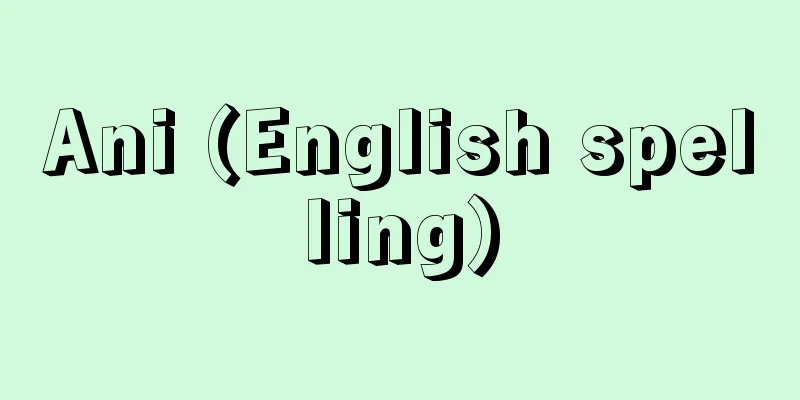
![Kawasato [Village] - Kawasato](/upload/images/67cb4646b11ff.webp)
